People who have had trauma
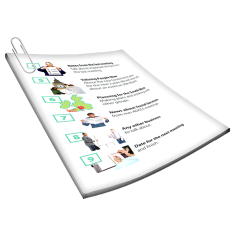
This information is about the mental health of people who have experienced trauma.
It has information on

- Key points for people who have experienced trauma

- Worries you might have when getting help for your mental health and what you can do

- Services and supports

Trauma is when something has happened to you that made you very frightened or very upset.

Everyone has different things that make us frightened or very upset.
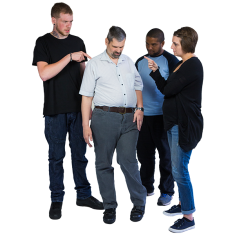
A lot of people with intellectual disability experience
- Abuse
- Bullying
- Neglect
These things can cause you to have trauma.
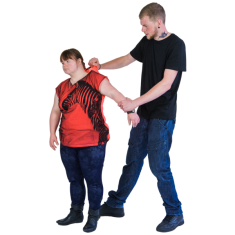
Abuse is when someone says or does something to hurt you or make you feel bad.

Bullying is when someone or a group of people are mean to you on purpose.
This could be more than one time.

Neglect is when someone who is meant to be supporting you does not give you the care you need.
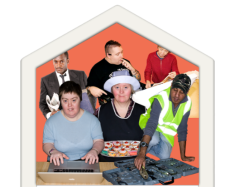
Trauma can happen to you anywhere.
Trauma can happen

- At home

- At school
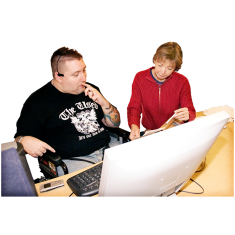
- At work

- When you are getting health care
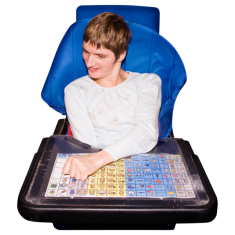
You can communicate with someone you trust if these things
- Are happening to you
- Have happened to you
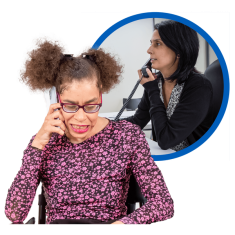
Even if it has only happened one time you can still let someone you trust know.
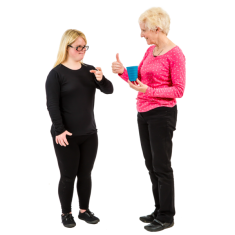
To communicate is how you understand and share your feelings or information.
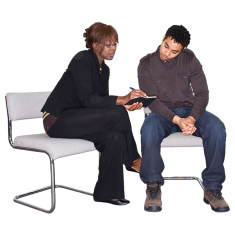
There are many people you might trust.
For more information about who you might trust go to https://www.idmhconnect.health/
someone-trust

Below are some worries you might have when you try to get support for your mental health.

We have some ideas for what you can do.
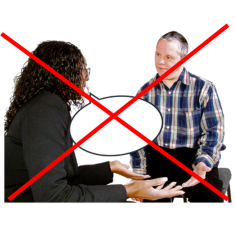
Your mental health worker does not ask about bad things that have happened to me in the past
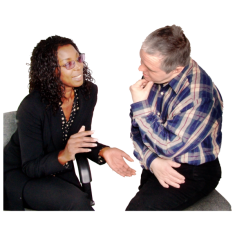
This is what you can do.
Communicate about bad things that have happened to your mental health workers.
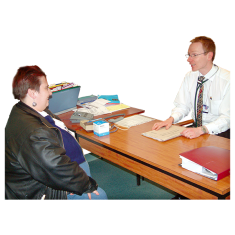
Mental health workers are people who work to help you with your mental health.

It is OK to communicate to your mental health worker if you think you have trauma.

It is OK to feel stressed or worried when you communicate about bad things that have happened.
This is normal.
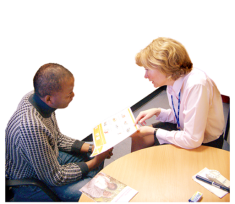
Communicating with mental health workers means they can understand you better.

If it is too hard to tell your mental health worker you can tell someone you trust.
You can get them to tell your mental health worker about your trauma.

My mental health is not getting better
Your mental health might not get better if you are experiencing

- Abuse

- Bullying

- Neglect

This is what you can do.
If you are in a crisis call 000.
A crisis is when you are in danger or are very upset.

You are in a crisis if you
- Want to hurt yourself
- Want to hurt someone else
- Want to die
For more information about this click emergency help
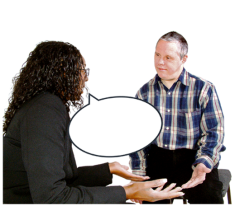
It is important to tell someone you trust if you are experiencing
- Abuse
- Bullying
- Neglect

You can communicate with someone you trust what is happening to you even if you are not sure if it is
- Abuse
- Bullying
- Neglect

For more information about how you can communicate with someone you trust go to https://www.idmhconnect.health/
communicating-about-my-mental-health/ER

My mental health is not getting better for other reasons
Your mental health might not get better if you can not stop thinking about bad things that have happened to you.

If you have experienced trauma it can be hard to stop thinking about it.

You might be living or working in the same place where these bad things happened to you.
This means that you might be reminded of these bad things.

This is what you can do.
If you cannot stop thinking about your past trauma you should tell someone you trust.

Someone you trust might be able to help you to change where you live or where you work.

When you change where you live or where you work you might feel
- Less stressed
- Less uncomfortable

Below is a list of services and supports to support people who have experienced trauma.

Call the Disability Abuse and Neglect Hotline if you want to talk to someone about
- Abuse
- Bullying
- Neglect

You can call the Disability Abuse and Neglect Hotline on 1800 880 052.
It is free to call them.

Speak Up and be Safe from Abuse has Easy Read information.
This information can support you to communicate to someone that you
- Have experienced
- Or are still experiencing abuse
For more information go to https://www.speakupandbesafe.com.au/
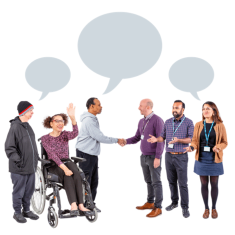
The Royal Commission into Violence, Abuse, Neglect and Exploitation of People with Disabilities was a group of people who
- Listened to the stories of people with disability
- Told the government how to make things better

They wrote about what they found in their final report.
For more information go to https://disability.royalcommission.gov.au/
publications/final-report
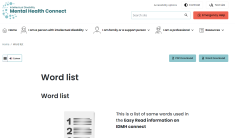
There are some tricky words on this Easy Read page.
For more information about these words go to